June 30 is London Anthropology Day, held at the British Museum’s Education Clore Centre, where participants get to learn what anthropology is about, the types of careers anthropologists have, and gain hands-on experience of what it is like to study the subject at university.
London Anthropology Day is organised by the Royal Anthropological Institute’s Discover Anthropology Education Outreach Programme in collaboration with the British Museum and participating universities.
———————————————————————————————————————————–
In the spirit of engaging young anthropologists, Berghahn is happy to present a selection of Anthropology Resources for Students and Young Scholars:
Anthropology Journals
Beginning in 2015, individuals may receive online-only subscriptions to any journal for just $34.95/year! Students may receive online-only subscriptions for just $19.95/year! That means students can get a year’s worth of unlimited access to any journal for less than $20.
Explore our Anthropology Journals here.
Scholarly Blogs
EnviroSociety
A multimedia site, EnviroSociety provides insights into contemporary socio-ecological issues with posts from top scholars in the social sciences that engage readers interested in current environmental topics.
FocaalBlog
FocaalBlog is associated with Focaal: Journal of Global and Historical Anthropology. It aims to accelerate and intensify anthropological conversations beyond what a regular academic journal can do, and to make them more widely, globally, and swiftly available.
Berghahn Blog
Berghahn Books’ very own blog page with special discount offers, info about new titles, author interviews, and more.
———————————————————————————————————————————–
Anthropology Books
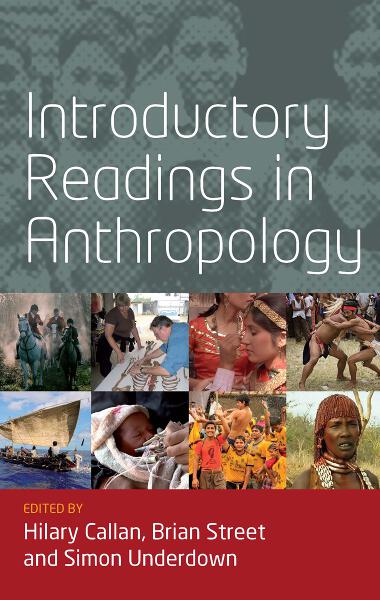 INTRODUCTORY READINGS IN ANTHROPOLOGY
INTRODUCTORY READINGS IN ANTHROPOLOGY
Edited by Hilary Callan, Brian Street and Simon Underdown
Published by Berghahn Books in association with the Royal Anthropological Institute
Anthropology seeks to understand the roots of our common humanity, the diversity of cultures and world-views, and the organisation of social relations and practices. As a method of inquiry it embraces an enormous range of topics, and as a discipline it covers a multitude of fields and themes, as shown in this selection of original writings. As an accessible entry point, for upper-level students and first year undergraduates new to the study of anthropology, this reader also offers guidance for teachers in exploring the subject’s riches with their students. That anthropology is an immensely expansive inquiry of study is demonstrated by the diversity of its topics – from nature conservation campaigns to witchcraft beliefs, from human evolution to fashion and style, and from the repatriation of indigenous human remains to research on literacy. There is no single ‘story of anthropology’. Taken together, these fundamental readings are evidence of a contemporary, vibrant subject that has much to tell us about all the worlds in which we live.
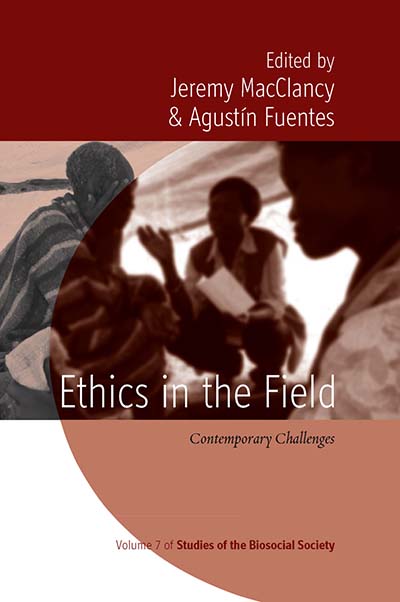 ETHICS IN THE FIELD
ETHICS IN THE FIELD
Contemporary Challenges
Edited by Jeremy MacClancy and Agustín Fuentes
Volume 7, Studies of the Biosocial Society
In recent years ever-increasing concerns about ethical dimensions of fieldwork practice have forced anthropologists and other social scientists to radically reconsider the nature, process, and outcomes of fieldwork: what should we be doing, how, for whom, and to what end? In this volume, practitioners from across anthropological disciplines—social and biological anthropology and primatology—come together to question and compare the ethical regulation of fieldwork, what is common to their practices, and what is distinctive to each discipline. Contributors probe a rich variety of contemporary questions: the new, unique problems raised by conducting fieldwork online and via email; the potential dangers of primatological fieldwork for locals, primates, the environment, and the fieldworkers themselves; the problems of studying the military; and the role of ethical clearance for anthropologists involved in international health programs. The distinctive aim of this book is to develop of a transdisciplinary anthropology at the methodological, not theoretical, level.
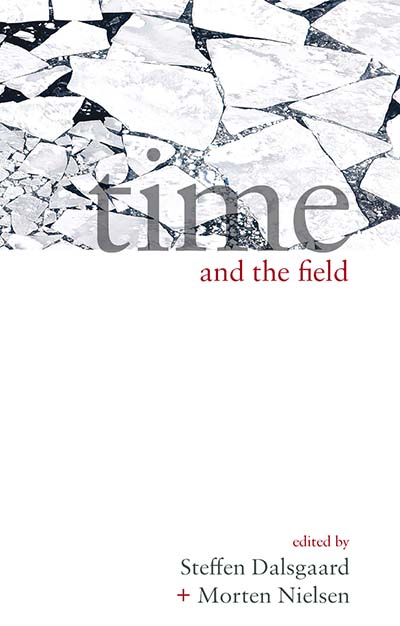
Forthcoming!
TIME AND THE FIELD
Edited by Steffen Dalsgaard and Morten Nielsen
Afterword by George Marcus
In recent years, ethnographic fieldwork has been subjected to analytical scrutiny in anthropology. Ethnography remains anchored in tropes of spatiality with the association between field and fieldworker characterized by distances in space. With updates on the discussion of contemporary requirements to ethnographic research practice, Time and the Field rethinks the notion of the field in terms of time rather than space. Such an approach not only implies a particular attention to the methodology of studying local (social and ontological) imaginaries of time, but furthermore destabilitizes the relationship between fieldworker and fieldsite, allowing it to emerge as a dynamic and ever-shifting contellation.
 WHAT IS EXISTENTIAL ANTHROPOLOGY?
WHAT IS EXISTENTIAL ANTHROPOLOGY?
Edited by Michael Jackson and Albert Piette
What is existential anthropology, and how would you define it? What has been gained by using existential perspectives in your fieldwork and writing? Editors Michael Jackson and Albert Piette each invited anthropologists on both sides of the Atlantic to address these questions and explore how various approaches to the human condition might be brought together on the levels of method and of theory. Both editors also bring their own perspective: while Jackson has drawn on phenomenology, deploying the concepts of intersubjectivity, lifeworld, experience, existential mobility, and event, Piette has drawn on Heidegger’s Dasein-analysis, and developed a phenomenographical method for the observation and description of human beings in their singularity and ever-changing situations.
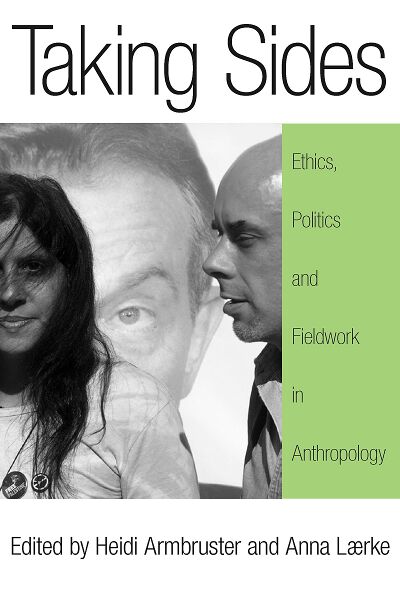 TAKING SIDES
TAKING SIDES
Ethics, Politics, and Fieldwork in Anthropology
Edited by Heidi Armbruster and Anna Lærke
Concerns with research ethics have intensified over recent years, in large part as a symptom of “audit cultures” (M. Strathern) but also as a serious matter of engagement with the ethical complexities in contemporary research fields. This volume, written by a new generation of scholars engaged with contemporary global movements for social justice and peace, reflects their efforts in trying to integrate their scholarly pursuits with their understanding of social science, politics and ethics, and what political commitment means in practice and in fieldwork. This is a book of argument and analysis, written with passion, clarity and intellectual sophistication, which touches on issues of vital significance to social scientists and activists in general.
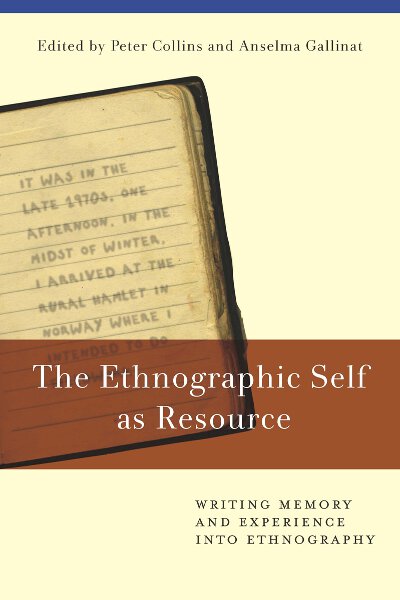 THE ETHNOGRAPHIC SELF AS RESOURCE
THE ETHNOGRAPHIC SELF AS RESOURCE
Writing Memory and Experience into Ethnography
Edited by Peter Collins and Anselma Gallinat
It is commonly acknowledged that anthropologists use personal experiences to inform their writing. However, it is often assumed that only fieldwork experiences are relevant and that the personal appears only in the form of self-reflexivity. This book takes a step beyond anthropology at home and auto-ethnography and shows how anthropologists can include their memories and experiences as ethnographic data in their writing. It discusses issues such as authenticity, translation and ethics in relation to the self, and offers a new perspective on doing ethnographic fieldwork.
For a full selection of Berghahn Theory & Methodology in Anthropology titles please visit our webpage.
———————————————————————————————————————————-
Methodology & History in Anthropology Series
Just as anthropology has had a significant influence on many other disciplines in recent years, so too have its methods been challenged by new intellectual and technical developments. This series is designed to offer a forum for debate on the interrelationship between anthropology and other academic fields but also on the challenge to anthropological methods of new intellectual and technological developments, and the role of anthropological thought in a general history of concepts.
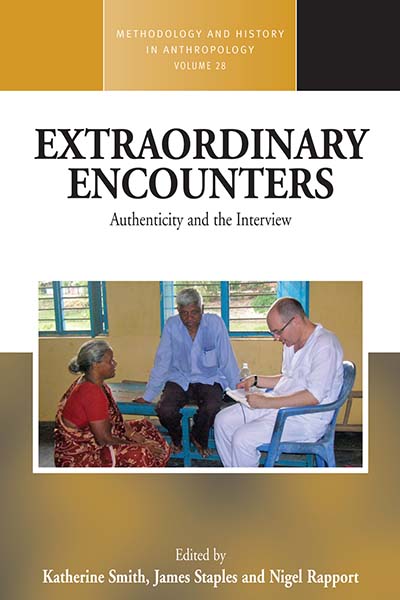 EXTRAORDINARY ENCOUNTERS
EXTRAORDINARY ENCOUNTERS
Authenticity and the Interview
Edited by Katherine Smith, James Staples and Nigel Rapport
Given the anthropological focus on ethnography as a kind of deep immersion, the interview poses theoretical and methodological challenges for the discipline. This volume explores those challenges and argues that the interview should be seen as a special, productive site of ethnographic encounter, a site of a very particular and important kind of knowing. In a range of social contexts and cultural settings, contributors show how the interview is experienced and imagined as a kind of space within which personal, biographic and social cues and norms can be explored and interrogated. The interview possesses its own authenticity, therefore—true to the persons involved and true to their moment of interaction—whilst at the same time providing information on human capacities and proclivities that is generalizable beyond particular social and cultural contexts.
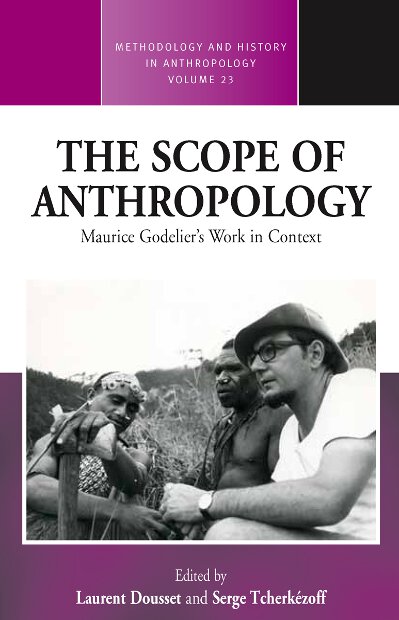 THE SCOPE OF ANTHROPOLOGY
THE SCOPE OF ANTHROPOLOGY
Maurice Godelier’s Work in Context
Edited by Laurent Dousset and Serge Tcherkézoff
Some of the most prominent social and cultural anthropologists have come together in this volume to discuss Maurice Godelier’s work. They explore and revisit some of the highly complex practices and structures social scientists encounter in their fieldwork. From the nature–culture debate to the fabrication of hereditary political systems, from transforming gender relations to the problems of the Christianization of indigenous peoples, these chapters demonstrate both the diversity of anthropological topics and the opportunity for constructive dialogue around shared methodological and theoretical models.
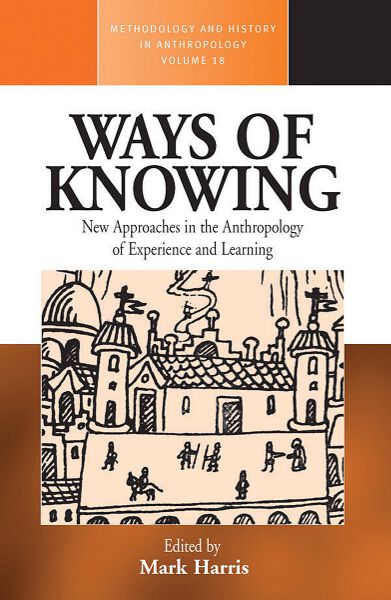 WAYS OF KNOWING
WAYS OF KNOWING
New Approaches in the Anthropology of Knowledge and Learning
Edited by Mark Harris
That there are multiple ways of knowing the world has become a truism. What meaning is left in the sheer familiarity of the phrase? The essays here consider how humans come to know themselves and their worlds. Should anthropologists should seek complexity or simplicity in their analyses of other societies? By going beyond the notion that a way of knowing is a perspective on the world, this book explores paths to understanding, as people travel along them, craft their knowledge and shape experience. The topics examined here range from illness to ignorance, teaching undergraduates in Scotland to learning a Brazilian martial arts dance, Hegels concept of the dialectic to the poetry of a Swahili philosopher. A central concern is how anthropologists can know and write about the silent, theconcealed and theembodied.
For a full list of titles in the series please visit the series webpage.
